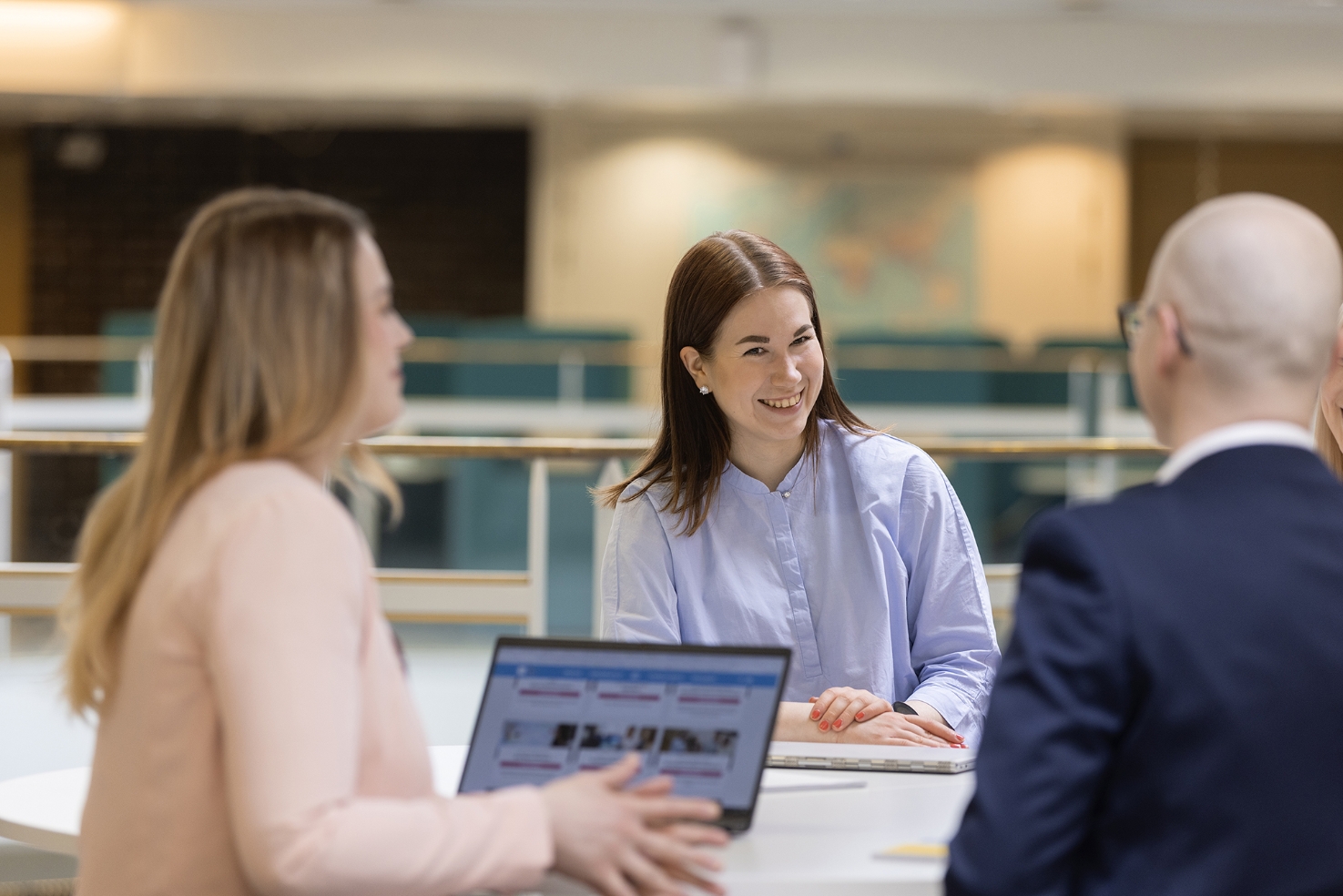What is the i4L?
The Living Lab serves as an innovative platform for development, bringing together developers, service providers, service users, students, businesses, communities, and researchers. It provides a forum for various stakeholders to develop and test new services, products, or practices together with intended users. Development methods used often include design methods and creativity. The latest technology and innovations are also utilized and developed within Living Labs.

Human-Centred Development
The aim of i4L is to enable human-centred development related to language learning and integration, where the real needs, views, and ideas of people are at the forefront. We aim to provide solutions and services that meet local needs and are functional from the perspective of communities and service users. We strive to identify and implement measures together that bring concrete and positive changes to people's lives. We present an innovative approach where we prioritize people. This means concrete measures in every i4L project and development pilot. We first ask people directly what they need, while simultaneously listening to service providers, seamlessly connecting needs, and offering solutions. Our goal is to create a comprehensive approach where all parties are actively involved in developing solutions. We bring together people and service providers to ensure that the solutions offered truly meet the needs. Through i4L, we aim to create a more permanent and sustainable collaboration structure based on smoother information exchange and long-term collaborative development.
How do we work?
We started our work through projects, which paved the path towards the development of the i4L. A living lab is an entity informed by service design approach, the i4L is strongly based on social codesign because we work with communities and for the communities, with the intention of enhancing their sense of well-being and empowering their members.
Currently, there are two EU-funded projects underway at the Language Learning and Integration Living Lab focusing on integration and language learning. In the ESF+ funded MAKU project, methods and networks related to language learning and specific language skills needed in working life are co-developed. The project aims to find agile ways to promote entry into working life and language learning needed at work. The Central Baltic funded CeMeWE project seeks ways to promote the employment of immigrant women. Various Living Lab methods and ways of collaboration between educational institutions, immigrants, employers, and service providers have been tested in these projects. New projects are regularly prepared, and we are open to collaboration proposals.
The cycle of social design is applied in the i4L. This means that we first do needs finding, ideation, codevelop strategies and innovations, test them, get feedback, and modify such strategies or innovations accordingly. This model requires engagement from all the stakeholders, and while the process takes time, it can bring long lasting positive results that influence not only the present but the future.
Multidisciplinarity
We work with a multidisciplinary perspective. This means that our teams and partners have a varied background, which provide the ground for a richer understanding of the needs of the community and institutions, organisations, employers, and service providers.
The i4L has discipline experts from Laurea University of Applied Sciences, who have built the lab’s backbone with qualitative research methods and social design. Our experts come from various scientific disciplines such as cognitive science, sociology, psychology, design, nursing, or gender studies. Our external partners have brought in various areas of expertise, such as Finnish language teaching, language learning technological innovations, and knowledge in other service fields such as hospitality or the service sector.
Space as an open learning and research infrastructure
The i4L space is part of Laurea's open learning and research infrastructure. The space can be used for community-based development, focus groups, etc. The space is available when there is no teaching taking place. The rental of the space is charged according to Laurea's general rates. Activities should be inclusive and non-discriminatory, preferably user-oriented. Some of the methods and research tools are such that they cannot be used without special training - for example, brain research tools require training.